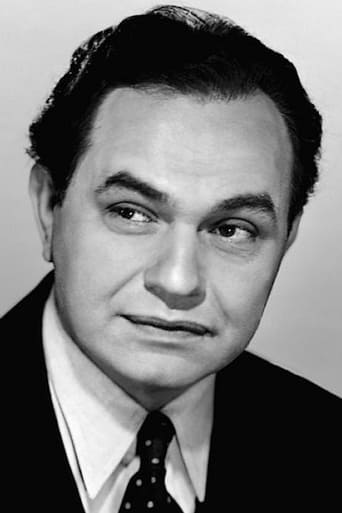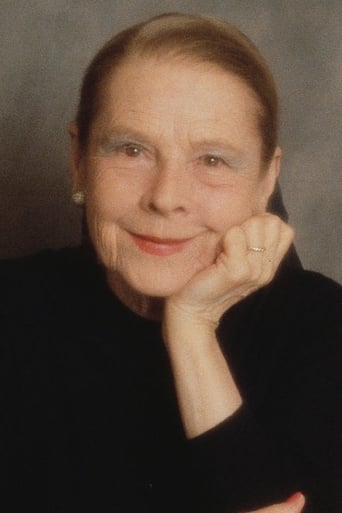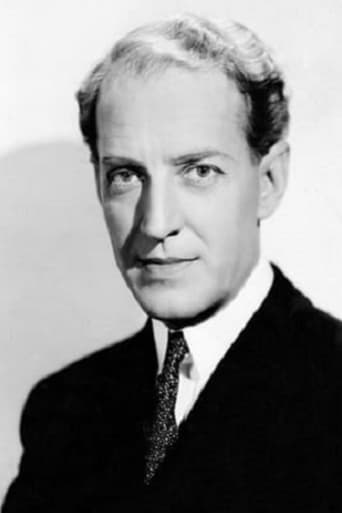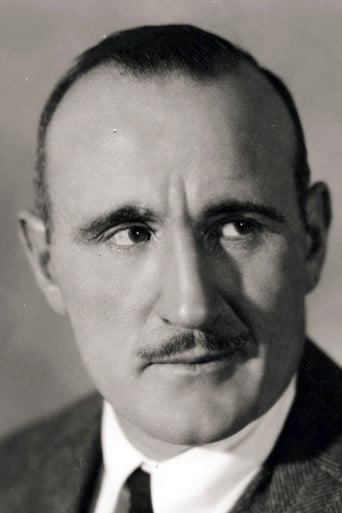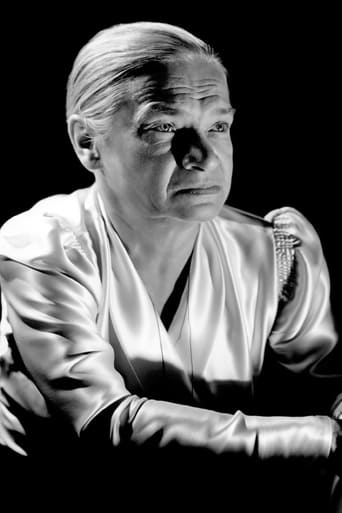SnoReptilePlenty
Memorable, crazy movie
Taha Avalos
The best films of this genre always show a path and provide a takeaway for being a better person.
Nicole
I enjoyed watching this film and would recommend other to give it a try , (as I am) but this movie, although enjoyable to watch due to the better than average acting fails to add anything new to its storyline that is all too familiar to these types of movies.
utgard14
Grand biopic as only Old Hollywood could do so well. An excellent performance from Edward G. Robinson as Dr. Paul Ehrlich, who works to create a cure for syphilis while battling tuberculosis and his peers' small-mindedness. With direction by the great William Dieterle and a script co-written by John Huston, this is an exceptional film. It's not easy to make a great movie out of what is essentially a medical research story, but they pull it off. Terrific supporting cast including Ruth Gordon, Donald Crisp, Otto Kruger, Donald Meek, Henry O'Neill, Maria Ouspenskaya, Albert Bassermann, Louis Calhern...so many more. Just a great lineup. Pretty daring to make a movie about syphilis at a time when the Production Code was in full effect. Wonderful biopic you should definitely check out.
calvinnme
If you've only seen Edward G. Robinson in gangster films, give this one a chance and see his range as an actor. Here he portrays German physician and researcher Paul Ehrlich, a pioneer at the turn of the 20th century in the treatment of infectious diseases and the man who found a cure for syphilis. Ehrlich starts out as a general practitioner employed by a hospital in order to provide a stable living for his family but whose real love is for research. His inquiring mind and nonconformist views ultimately makes him a leader in his field, but not before his pioneering ideas get him in trouble with the medical establishment in his country. Robinson has excellent support here with Ruth Gordon playing Ehrlich's adoring wife. Otto Kruger ably portrays Emil Adolf Von Behring, Ehrlich's friend and colleague who find himself at odds with his good friend's professional ideas at one point in their careers.The film was controversial at the time for mentioning the disease "syphilis" by name, and I'm sure a little bit of sensationalism is why Jack Warner thought that Dr. Ehrlich's biography would be good material for a film, but there's something more subtle going on here. Made in 1940, after the Nazi menace had been recognized by many but before America had been attacked, there are many not so subtle digs at Germany to be found here. Early in the film several of Ehrlich's colleagues are ratting him out to the head of the hospital for not following hospital rules. Specifically, Ehrlich realizes that the sweat baths prescribed as the treatment of syphilis at the time - 1890 - are of no value whatsoever. When a patient of Ehrlich's says that the baths sap his strength and may cost him his job, Ehrlich says that he can skip the baths. This humane act of deviating from a useless treatment is the "rule" Ehrlich has broken, and what gets him called on the carpet by the head of the hospital. The whole incident is one of several that make the Germans look rigid and inhumane. The issue of Ehrlich's colleagues doubting his abilities because of his religion - he was Jewish - also comes up a few times. Finally, when the state budget committee that is financing Ehrlich's lab comes by for an inspection they chastise Ehrlich for hiring a "non-German" doctor. It's very effective but subtle criticism of the Germans that Warner Brothers did so well in the years leading up to the war.One bone that Warner Brothers did have to throw to the censors because of the open discussion and showing of syphilis patients in various stages of the disease is that they could not show any female patients. They were only allowed to show male sufferers. I guess these guys all got this from "an inanimate object" as Dr. Ehrlich says is possible at one point in the film to downplay the sexual transmission angle of this disease. Wasn't the Breen era of the production code a scream?
Michael_Elliott
Dr. Ehrlich's Magic Bullet (1940) *** 1/2 (out of 4) John Huston co-wrote the screenplay and won an Oscar for it for this bio-pic from Warner. Dr. Paul Ehrlich, played brilliantly by Edward G. Robinson, draws heat from his peers when he decides to try and find a cure for the morally incorrect syphilis. It's rather shocking to find out that Robinson never received an Oscar nomination and it's even more shocking after watching his brilliant work here, which is perhaps the greatest I've seen from him. He has to age several decades here but Robinson nails each stage of the doctor's life from his early days working in a hospital to his final days dealing with a trial over his syphilis serum. It's amazing to see how much Robinson transformed himself because he looks and acts unlike anything I've seen him in. He has a wig on, a strange beard and right from the start you see him as the doctor and not Robinson. There's no question the actor will always be remembered for his role in Little Caesar but his work here is so much better. The studio went all out and gave him a terrific group of supporting players including Otto Kruger, Ruth Gordon, Donald Crisp, Maria Ouspenskaya, Henry O'Neill and Donald Meek. The screenplay is very ambitious in that it tries to cover various aspects of Ehrlich's life and for the most part it works, although I thought that a few segments were rushed over so that the film could get onto other aspects of his life. The final trial didn't come off too well but it did make for a nice payoff through Robinson's touching final scene inside the courtroom.
bkoganbing
Dr. Ehrlich's Magic Bullet came out in 1940 a year after Paul Muni's contract with Warner Brothers ended. I'm sure this property was originally developed with him in mind. But Edward G. Robinson does an excellent job in what may have been his best screen role.Sad that this above all films was not given an Oscar Nomination for Best Actor for Mr. Robinson. He never was even nominated and was given a posthumous tribute Oscar after his death in 1973.Paul Ehrlich (1854-1915) was a pioneer scientist who discovered first the principle of staining microbes, the better to see them with under a microscope which was of inestimable value to research scientists still today. But he's best known for discovering an effective cure for syphilis.The film opens in fact with Robinson as Ehrlich breaking the bad news to a young man that he now has it. The young man kills himself and this effects Robinson. The rest of the film is spent in search of a cure for the disease which was not even mentioned in polite company.With the advent of the AIDS epidemic, scientists in the 1980s ran into the same prejudices that Ehrlich dealt with. He also labored under an additional prejudice of being Jewish. In 1940 that point was not lost on the audiences. It's a very relevant film today, brought gloriously to life by a great star and a great ensemble cast of players.

